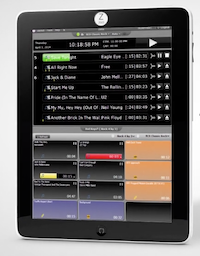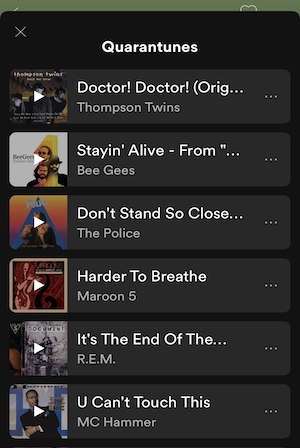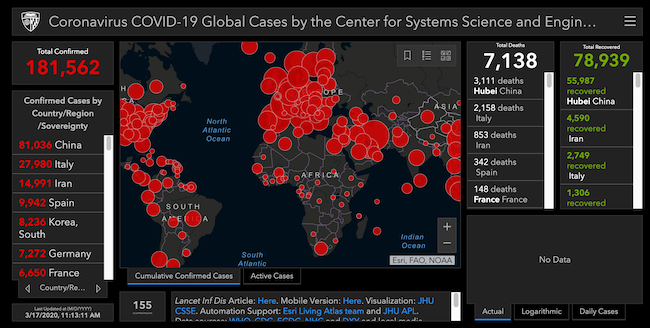As quarantines and lockdowns increase in the face of COVID-19, Steve Ahern has canvassed a number of stations to compile some tips on safety measures and business continuity.
Several stations I work with Singapore and Malaysia are adopting a traffic light warning system for their visitors and staff: green for no threat, yellow for caution and red being the highest level of alert. The status is reviewed daily, displayed around the building, and moved up or down depending on changing circumstances. Each level of alert has different implications for who and how many people physically come to the studios.
Around Australia I have seen a range of advice from the simplistic ‘spray the pop guard with Glen 20,’ (don’t do that… read on to find out why), to fully blown evacuation and relocation plans.
As more people isolate themselves, they will need to connect with the rest of society in other ways. Live radio will need to play a big part in that. Radio is an essential service and, at times like this, can help the community through the crisis (see related article).
Let’s look at some of the more important aspects to think about as you prepare your station for the escalation of the virus.
Hygene and Cleaning
Switch studios regularly if possible, clean surfaces with antiseptic applied via a cloth after each team is finished. Wipe down desk surfaces, phone handsets, keyboards, mouse and door knobs (door knobs have been shown to harbour the virus and are often forgotten) and leave the antiseptic on the surface for a short while before wiping it off.
If necessary, spray an airborne disinfectant. If you do spray PineOCleen or Glen 20, don’t spray it when people are in the studio and DON’T spray the pop guard when it is on the microphone, if it gets into the microphone it can do damage. Instead of spraying onto the mic, spray the disinfectant upwards, above the desk, so that it drifts down over the whole area. If you have enough spare pop guards cycle them through, wash the ones you take off in soap and water then let them dry fully before replacing. Some presenters prefer to have their own headphones and pop guards, if possible encourage as many people to bring their own during this virus outbreak. See more discussion about pop filters and mics at Technorama.
Some people have suggested using pantyhose as a filter. This is not recommended, as the fabric is probably not dense enough to stop the virus droplets passing through. John Maizels writes on the Technorama website: “Try this. Take a pantyhose-style pop filter. Hold your hand on the far side of the pantyhose and spray water from the near side… at plosive or sneeze velocity. Does your hand get damp? If it does, the filter has allowed water droplets through and those droplets could carry hundreds of thousands of viruses.”
If you have a touch screen, it should definitely be cleaned, but not sprayed. Clean with chemicals that won’t damage the screen, consult your owners documentation or check with the supplier (eg Microsoft info).
Staying On Air
At some stage you may have to close your studios. How will you keep the station on air?
Remote program scheduling – Thankfully most music scheduling and playout systems these days have remote scheduling, voice tracking and playout options. As you leave the studio, turn to automation and control the scheduling and playout remotely from home.

Voice tracking – Playout systems now also have the ability to ingest voice tracks from your phone, tablet or home computer, (eg, RCS Zetta2GO). When you are voice tracking from home, think about the audio quality. Just because you can talk into your phone to create a voice track, doesn’t mean you should. Think of your acoustic surroundings: sitting in a park may not be the best location for voicetracking. Your echoey kitchen or living room may also not be suitable, go to a smaller room and use curtains or furniture to disrupt the echos. Choose a good mic and keep it close to your face like you would in a studio, maybe a headset mic would be good, but not a cheap one that you use for skype or video gaming.
Don’t have a playout system? Some community stations don’t use playout systems, but perhaps its time to get a basic player (eg Winamp) on your studio computer where you can stack programs for continuous replay. You will need to be able to log into it via a remote desktop app. Make sure your firewalls allow your remote computer into your network, but ensure you keep up your normal levels of security so that hackers can’t compromise your equipment. Ask presenters to prerecord emergency shows that are not time or date sensitive in case they can’t make it in to do their shows or if the studios are locked down.
What if the studios need to be bypassed? Ensure you know the path to your transmitter and how to connect to a computer there. If there is no playout computer at the transmitter site, consider putting one there that is loaded with 48 hours pf programming content and can be triggered remotely, or manually if you can access the site easily. While you’re checking the transmitter site, review your emergency tape and update it so that, if all else fails, when the studios go silent the emergency program will kick in.
Limiting Visitors
Most stations have now taken ‘social distancing’ measures such as working from home, rotating staff so that only some come to work each day (Monday, names beginning with A-D, Tuesday E-H, etc), and have abandoned physical staff meetings. Limit the number of visitors, do more phone interviews and invite people to send you WhatsApp, Skype or Messenger voicemails. Radio is an audio medium, try to keep as many different voices as you can on air, but do it through different means.
Business Continuity
Most professional stations use online sales systems such as Salesforce or Wedel, which provide remote access via phone apps. Your ad scheduling traffic team probably uses Aquira or Wedel, which can be accessed remotely.
Some of your customers may want to cancel their campaigns, but see the tips here from Pat Bryson and suggest that they change the messaging rather than cancel. Divert all station phones to appropriate mobiles.
Remote Working
Will the internet hold up? IT professionals have made the point that domestic internet is configured for different speeds and peak loads, so working form home may be a bit frustrating at times. Is you plan adequate for the purpose or do you need to upgrade it? If you have the NBN installed chances are your internet pipes are big enough, but if your area is still on copper wires you may find it frustrating for conference calls and video activities that use larger bandwidth. Many home internet plans have plenty of download capacity, but not as much uploading capacity, so attaching files to emails may be slower then usual. When you’re at work, much of your activity remains on your own servers and does not have to go out to the open web as it sends to your colleagues, but from home it will all be going over the web so peak loads are likely to be experienced more often during working hours. Consider staggering your working hours if you have difficulty with internet. With more time at home and less socialising, maybe now is the time to do an online course, such as the AFTRS Content Management Certificate.
Web providers are tracking internet usage patterns globally. “As more people work from home, peak traffic in impacted regions has increased, on average, approximately 10%,” according to Matthew Prince, CEO of Cloudflare. Adriane Blum from the outage-reporting site Downdetector says he has “definitely noticed a wave of outages/issues correlated to coronavirus traffic spikes.”
Optus has told its subscribers that they will be granted an extra free 20 GB of data during this month of working from home and other providers are likely to follow suit.
Personal precautions
You’ve read them all by now. Wash hands regularly with soap and water, clean surfaces, use social distancing, avoid crowded places. remind your listeners about all the health precautions regularly, even if you think it is overkill, people need constant reminders and updates on the latest health advice.
Over the past few days there is emerging new information that may indicate that everyone is at risk, not just older people. Follow the advice of health authorities and be aware of how the information is constantly changing. There are also some good tips here.
News
It is serious, it is deadly, but not everyone dies from Corona Virus. In your reporting consider if it is balanced. If all that people hear about is deaths, then anxiety and panic may result. Look back at your bulletins and count the number if times you reported case numbers or deaths. Now ask yourself, how many times did we report recovery numbers? To give the full picture perhaps we should report recoveries when we report deaths.
If you calculate the numbers on this interactive data visualisation of world figures from John Hopkins University you will see that, of the 181,562 cases recorded in the world at this date, sadly 4% (7,138 people) have died, but 43% (78,939 people) have recovered. The rest are currently sick and it is not known if they will recover or not, but as the virus progresses the numbers will continue to tell the story of the trend.
Events
In Australia, events over 500 people have now been banned, and smaller events may also come into question as the spread of the virus progresses. This looks bad for radio station concert promotions, but perhaps some new thinking is required.
Some stations I know of are brainstorming the question, ‘why do we do concerts, what do we want to achieve?’ For music artists, they want to fill stadiums and make money from ticket sales, but for radio, it is mostly to create a buzz around one of our playlist artists, or to deliver an event that rewards our loyal listeners.
Once you know your core objective for partnering with music events, ask yourself, can we do this another way? The Nova Network is well ahead of the curve with its intimate exclusive Red Room events, and so is Fox FM with its World Famous Rooftop gigs. Could you do these with a small or no audience? Probably, via private facebook live events, or closed video conferencing platforms. If you do, then make sure to use the interactive properties of social media and video conferencing apps to get the most out of the event – tell the talent to talk direct to the camera, get them to ask viewers to respond with likes and comments as the event progresses, provide a monitor screen so the artist can see and react to relevant comments, produce the event like a tv show, have a screener who screens the social media comments and chooses the one for the talent to see on the screen, just as you do in a live radio show. Earn revenue by partnering with paid services such as Spotify or promoting playlists that will give the artists more royalties for more play.
Social Connection
In this time of social distancing, people staying at home will need to be connected in some other way. People who work in radio know how to connect people. Calls, competitions, quizzes and talkback are all proven methods of connecting people and informing them of what is happening. Stations are beginning to go back to tried and true games such as Trivial Pursuit, Family Feud, Articulate even Scrabble. Stations are using group player apps and facebook live to connect the players and add a new dimension to old radio games.
Entertain
 While Rita Wilson and husband Tom Hanks are quarantined in her Queensland hospital, she still has a sense of humour.
While Rita Wilson and husband Tom Hanks are quarantined in her Queensland hospital, she still has a sense of humour.
Her Corona Virus ‘Quarantunes’ playlist contains the songs Stayin Alive, Doctor Doctor, Don’t stand So Close to Me, and others with meaning. What would be your quarantine corona playlist?
Connecting and entertaining people will become more important the longer this virus continues, so find ways to allow people to share their stories using playlists or other discussion starters. Perhaps compile a shunt in playlist every day during your show with the help of you listeners, put it up on various platforms, then the next night ask who listened, what they did while listening and what else should be added.
In further developments: Tom Hanks has been released from hospital, but Rita Wilson is still in quarantine at Gold Coast hospital. NBN Co will provide retail service providers (RSPs) with additional bandwidth capacity at no extra cost to underpin network performance for Australians working at home. To support productivity and connectivity in response to COVID-19 social distancing measures, RSPs will have access to up to 40 per cent more Connectivity Virtual Circuit (CVC) at no additional charge for at least three months.
Nova’s Ben & Liam look at the lighter side of Corona Virus precautions.
YOUR SUGGESTIONS: If you have information, suggestions or further tips, please post them below or send them to [email protected] so we can add them to theis article.
About the Author
 Steve is the founding editor of this website.
Steve is the founding editor of this website.
He is a former broadcaster, programmer, senior executive and trainer who now runs his own company Ahern Media & Training Pty Ltd.
He is a regular writer and speaker about trends in media.
More info here.
Subscribe to the radioinfo daily flash briefing podcast on these platforms: Acast, Apple iTunes Podcasts, Podtail, Spotify, Google Podcasts, TuneIn, or wherever you get your podcasts.





Do you think we could use pantyhose as a virus filter? I have seen it suggested elsewhere.
While pantyhose do work as a low cost make shift pop filter to lessen air hitting the mic when you say plosive sounds such as 'P,' there is no evidence to suggest that they could help filter out the virus. See a discussion about it here https://technorama.org.au/?p=3571.
We have added mention of this to the article above.